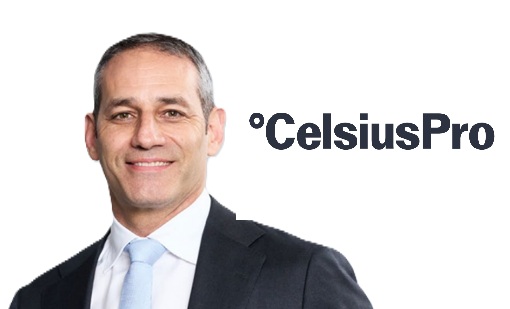
Finding the right Primary Care Physician (PCP) to coordinate your health care is important at all stages of life.Children, young adults, and older adults can all benefit from a sound relationship with their doctor.But finding a PCP can be a challenging task, especially if you do not know where to start.Read on to learn more about how to find your primary care physician, then reach out to the experts at for more information.How to Find Your Primary Care Physician (PCP)Finding the right Primary Care Physician for your needs is critical to ensuring good health over your lifetime.
Here are some ways to begin your search.1.Review your health plan’s website.You may find starting your search by reviewing your health plan’s website for in-network doctors is helpful.You can locate doctors that are in-network and accepting new patients easily.
Selecting a PCP that is included in your plan’s network can help save you money.2.Decide what type of PCP you need.There are several different types of doctors that are considered Primary Care Physicians.Consider which type of doctor you need for your circumstances and family.Internal Medicine – PCPs who specialize in the treatment, prevention, and diagnosis of internal diseases.
These doctors are often called internists or physicians, and usually only treat adult patients.Family Practice – PCPs who specialize in family medicine see all the members of a family, from children to adults and older adults.General Practice – A PCP who is a General Practitioner sees patients of all ages and treats both acute and chronic diseases.Nurse Practitioner – Nurse Practitioners, while not doctors, can act as your PCP.They are trained to evaluate, diagnose, and treat patients.Nurse Practitioners can refer you to a specialist and write prescriptions for any medications you may need.Pediatrician – PCPs who treat children are called pediatricians.
They often see newborns through age 21, although some patients stay with their pediatricians through their college years before transitioning to an adult doctor.Geriatrician – Also called a Geriatric Doctor, this is a PCP who specializes in treating older people and the ailments, diseases, and chronic conditions afflicting elderly people.3.Think about characteristics important to you.Do you want a PCP that specializes in sports injuries or women’s health? Maybe you have a chronic condition and would like a PCP that understands that.If you speak another language besides English at home, maybe a PCP that speaks your native language is an important consideration.4.
Consider logistics.Think about the location of your PCP’s office and any labs or hospitals they use.You may want to select an office that is close to your home or workplace or one that is located on your commute to increase the convenience factor.Telemedicine is rising in popularity, and you may want a PCP that can see you virtually when needed.5.
Ask for referrals.Word of mouth is a great way to narrow your search for a PCP.Ask friends, family, and colleagues if they have a local PCP they love.If you’re relocating and need a new PCP closer to your new location, you can ask your old doctor for a recommendation – they may have a colleague in your area that would be perfect to take over your care.
Neighborhood apps like Nextdoor can be a helpful place to ask for referrals, too.6.Search online reviews.Once you have a PCP in mind, check online reviews.Many people write reviews of any service they use, from restaurants to autobody shops.
Doctors are no different – patients review their services, and you can see these reviews online.It can be a helpful source of information about the office, the front desk staff, and the doctors.7.Call and ask questions.You are welcome to call a potential PCP’s office to ask some questions before committing to a doctor.
This can be helpful research to learn how the office interacts with patients.Are phones answered timely (or at all)? Can you reach a live person through the phone system or are you forced into voicemail during normal business hours? If you do reach someone in the office, take note of the interaction – is the person you are speaking with pleasant, understandable, and efficient? Are they able to answer your questions or find someone who can? Do you feel rushed or disrespected?These are all important considerations when you start your search to find your primary care physician.Next StepsOnce you have found your PCP, schedule an appointment to meet with them.This allows you to know if you will get along well and is the best way to decide if this is the right PCP for you.
You can ask them questions and get to know the office and nurses.You need to be comfortable, so take your time to prepare for your visit.Write down any initial questions or concerns you have.If there is anything important about your care or how you like to communicate with your doctor, make sure you mention it.
It is helpful to organize your thoughts in a list before your appointment, so you do not forget anything.You may want to ask about how your PCP handles things like lab tests, bloodwork, and referrals to specialists, so you are prepared in advance.Find out which lab and hospital they work with, so you know where to go.If the visit does not go well, your health plan may allow you to change your PCP.Remember that you must be comfortable talking with this person and taking their advice, so it is important to find the right fit.Final ThoughtsThe right PCP is vital for your good health.
They coordinate your care and work with you to answer your questions and refer you to specialists.It is important to find the right PCP for your needs and to find someone you feel comfortable talking to – after all, your PCP needs to hear your concerns to find solutions.Using the tips in this article can help you narrow your search and find the right PCP.How do I Learn More?To learn more about how to find your Primary Care Physician, contact the experts at .
Our licensed professionals will be happy to answer any questions you have.
Publisher: EINSURANCE








